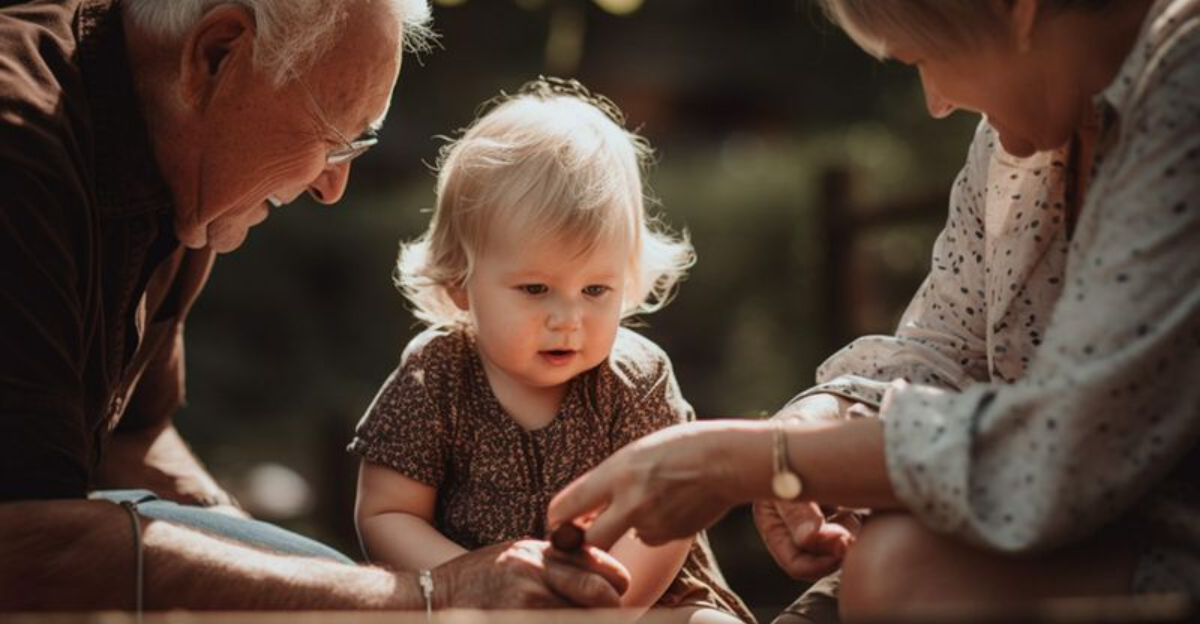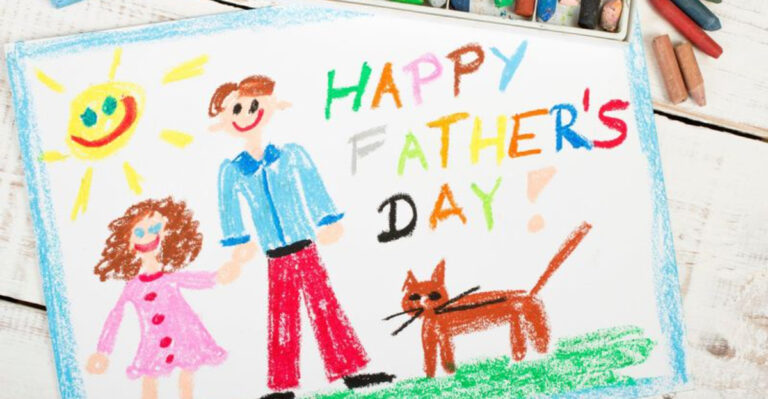15 Things Grandparents Do That Leave A Lifelong Impression
Some moments with grandparents stick with you for life, whether you want them to or not.
There’s no script, no Pinterest-perfect memory board—just flashes of truth, raw affection, sometimes mess, and always some lesson you didn’t even know you were learning.
Let’s talk about the real stuff grandparents do, the kind that gets under your skin and stays there, reshaping little pieces of who you become.
1. Passing Down Family Traditions
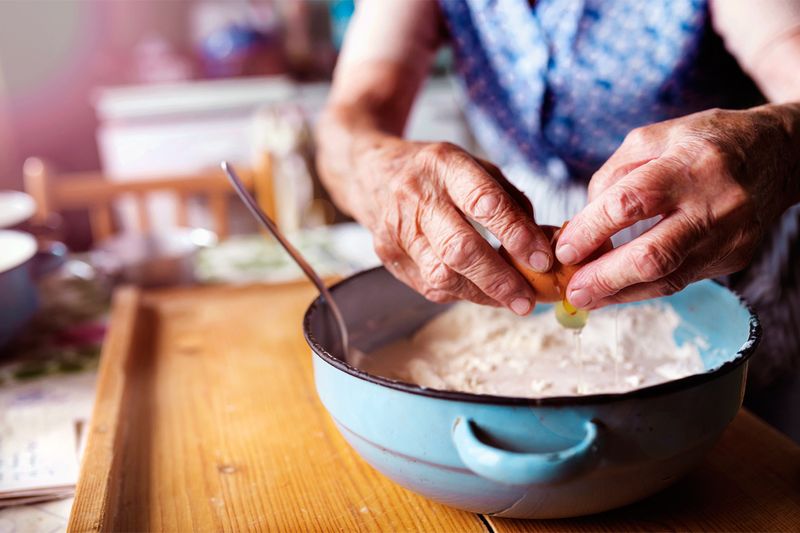
There’s something wild about watching your grandma tie on the same apron she’s worn for forty years, then hand you a rolling pin like it’s a magic wand. She doesn’t need a recipe; it’s all muscle memory, passed from someone before her, and now she’s showing you. It isn’t just about food, or even the rituals—it’s proof that you’re part of something bigger than yourself.
Every holiday, every quirky family saying, every time she makes you repeat the story about your great-uncle’s disastrous haircut, it gets cemented a little deeper. Rituals become anchors when life gets unsteady. You remember the laughter, the smells, the weird inside jokes only your family gets.
Did you know? In many families, grandparents are the unofficial historians. They’re the reason you know how to fold dumplings, say prayers in three languages, or hum old folk songs without knowing the lyrics. What sticks isn’t the tradition—it’s the feeling of belonging.
2. Sharing Wisdom and Life Lessons
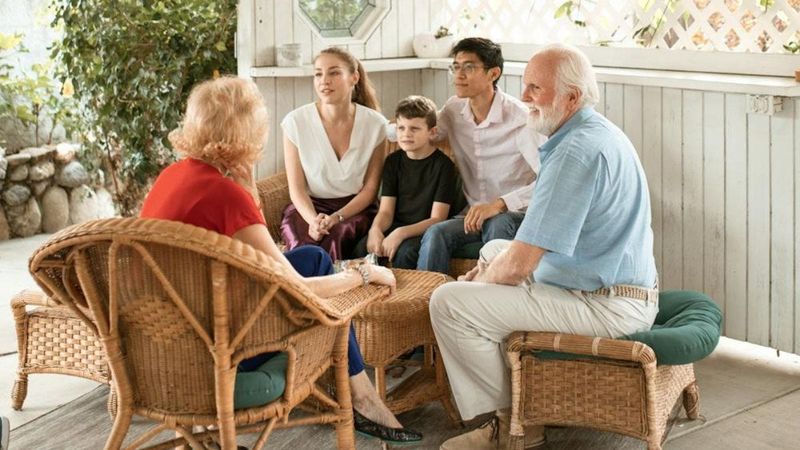
Not all advice hits you like lightning. Sometimes, it’s a line dropped during a car ride or a story you hear for the hundredth time—only this time, it lands. Grandparents have a way of giving you the kind of advice you only understand years later, on a random Tuesday when you need it most.
He’ll tell you about the job he lost, the friend he forgave, or the time he walked away from something everyone told him to keep. The words hang around, echoing when you’re standing at your own crossroads. You might roll your eyes as a kid, but you remember.
Here’s the truth: Grandpa’s cautionary tales aren’t just about him. They’re warnings, encouragements, and second chances tucked inside stories. And if you’re lucky, you start to see them for what they really are—gifts, wrapped in ordinary days.
3. Offering Unconditional Love

You never had to earn it. That’s the quiet miracle of a grandparent’s love—it doesn’t keep score or require you to be anything but yourself. It’s the soft landing you fall into after a hard week, no explanations needed.
Sometimes, it’s a look across the room that says, “I see you.” Other times, it’s a hand on your back or a plate of cookies left at your door, no questions asked. There’s a power in being loved like that—steady, unwavering, without strings.
The thing is, you don’t realize how rare it is until you’re older. Not everyone gets that kind of fortress. But if you ever felt it, even for a minute, it changes the way you let yourself be loved by others. It sets the standard.
4. Teaching Patience and Empathy
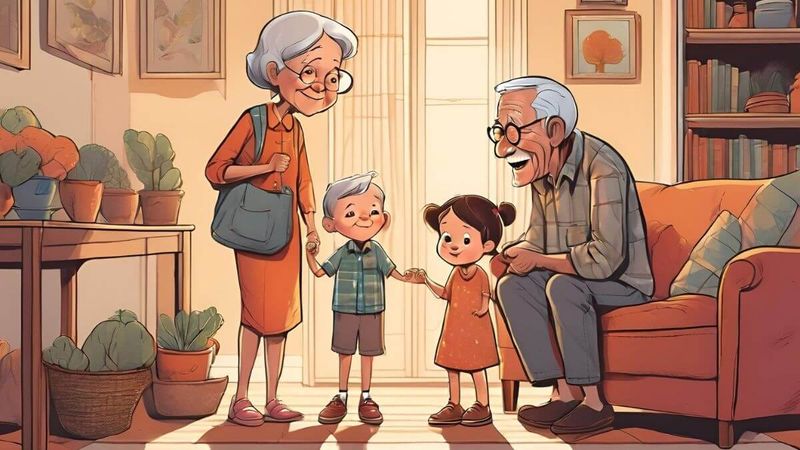
It’s one thing to hear, “Be nice.” It’s another to watch your grandpa wait quietly as you struggle with laces or spill orange juice for the third time in a row. He never hurries you, never sighs like he’s got better things to do. That’s how you learn patience.
Empathy comes from watching how he listens—really listens—to people’s stories, even ones that go nowhere. He remembers names, asks about neighbors, forgives small mistakes. These moments plant roots in you, long before you realize it.
Turns out, it’s not just about patience with others. It’s learning to give yourself a break, too. Grandparents show you it’s okay to move at your own pace—and to be gentle with the messiness of being human.
5. Creating a Sense of History and Identity
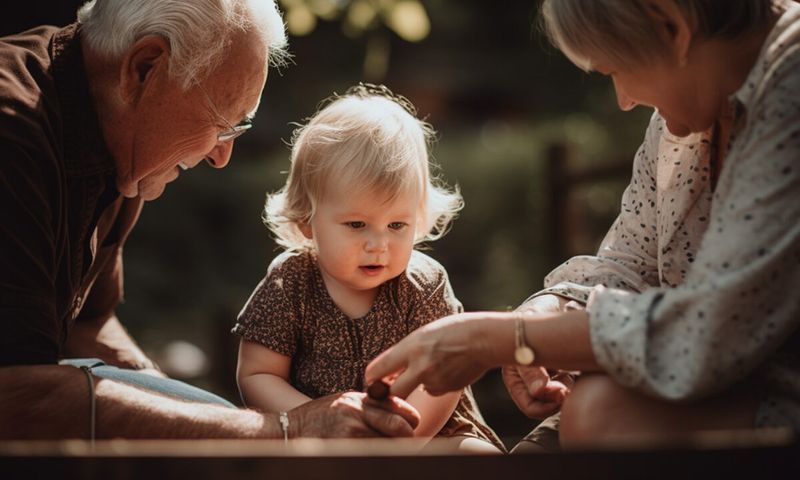
You don’t just learn your family’s story from your grandparents—you feel it. There’s a weight to hearing where your last name came from, or what it cost your great-grandfather to start over in a new country. It’s not about nostalgia; it’s about seeing yourself as a link in a long, messy chain.
When your grandma tells you about her childhood—what she lost, what she fought for—it cracks open your world. Suddenly, you’re not just a kid with homework and worries. You’re someone with roots, with ancestors who survived, who laughed, who made mistakes worth remembering.
Family stories help shape identity in children and teens. They fill in blanks you didn’t even know you had, making you less likely to feel lost when the world gets noisy.
6. Being Role Models
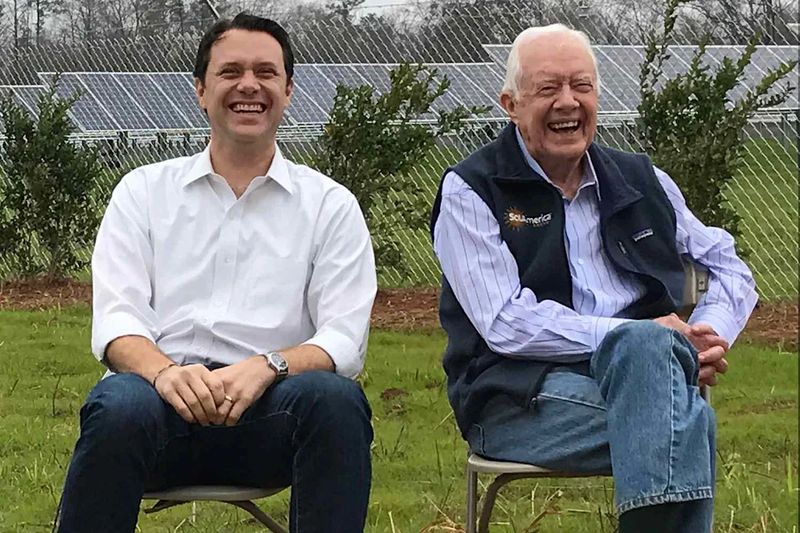
There’s no PowerPoint or lecture. Your grandparent simply gets up, every morning, and does the next right thing. You watch him scrape paint, make small talk with the mail carrier, or admit when he’s wrong. That’s how you learn what dignity looks like.
It’s about the details—how he treats strangers, how he keeps promises, how he shows up even when it’s thankless. You see the difference between a speech and a steady example. It’s never perfect, but it’s always real.
Did you ever notice? Sometimes, you catch yourself picking up his habits—a way of folding towels, a certain look when someone’s lying. You realize you’re carrying pieces of him, long after he’s gone.
7. Encouraging Creativity
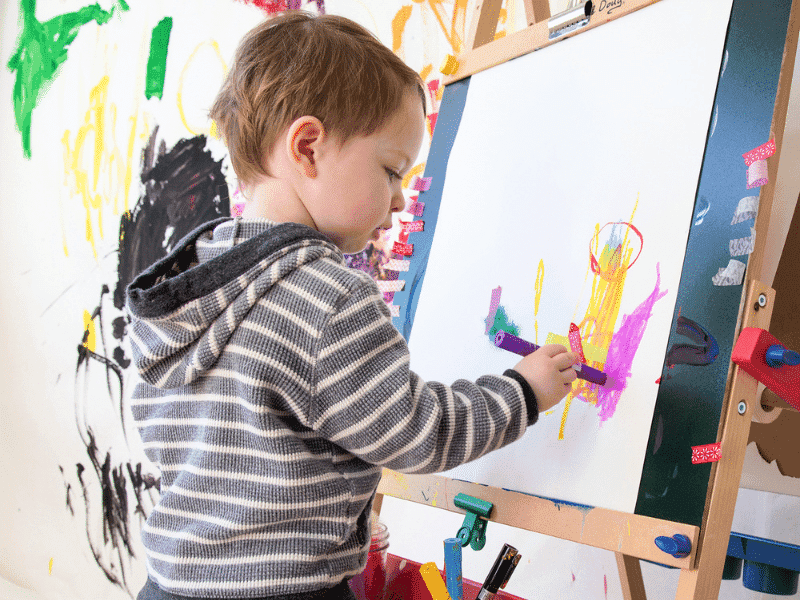
Creativity isn’t always about talent. With grandparents, it’s about freedom—the permission to make a mess, to try weird ideas, to glue macaroni to cardboard and call it art. There’s no judgment, just wonder at what you’ll make next.
Maybe she teaches you to knit scarves full of dropped stitches, or helps you write poems about the neighbor’s dog. She celebrates every wild invention, every crooked drawing, as if it belongs in a museum. That kind of encouragement stays with you.
Studies show that creative play with trusted adults boosts resilience and problem-solving skills in kids. Grandparents do this without even trying—just by showing up and saying, “What if we made something together?”
8. Providing a Safe Haven
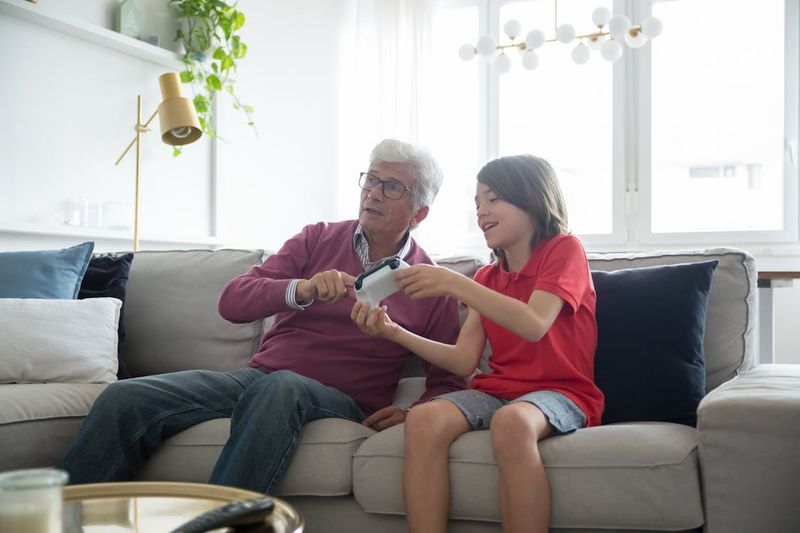
Some houses smell like safety. You walk in, and the world’s chaos falls away. Your grandma’s couch, the chipped mug, the sound of her slippers on the floor—it all tells you you’re safe. No one’s judging the grade on your math test or the state of your hair.
She doesn’t fix your problems, but she makes space for you to breathe. If you want to talk, she listens. If you want silence, she pulls you close and lets the quiet fill up the room.
Grandparents’ homes become sanctuaries—places where you figure yourself out. When the rest of life feels sharp, you remember what it’s like to be known and accepted, even when you’re falling apart.
9. Imparting Cultural Heritage
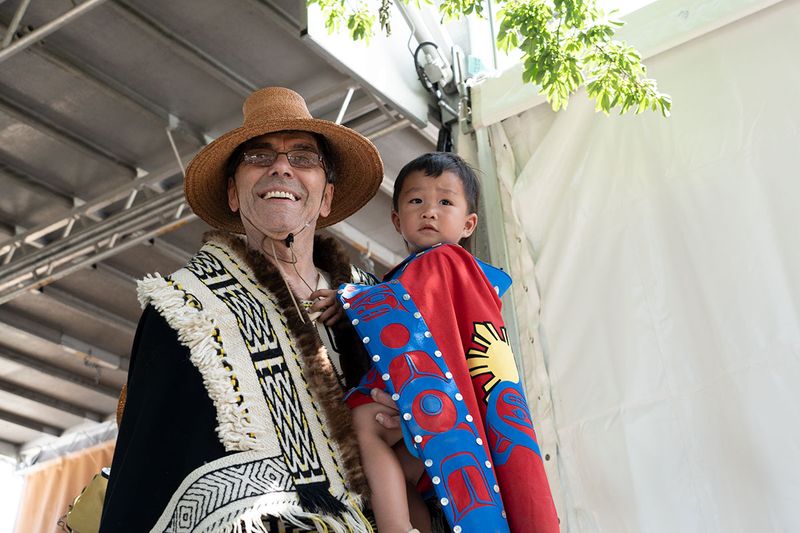
Flags and costumes are just the start. Grandparents become the keepers of culture, making sure you know how to pronounce the old words and dance the old dances, even if you roll your eyes at first. They turn Saturday mornings into language lessons, afternoons into storytelling sessions.
You might not feel the weight of it as a kid, but those rituals settle deep. They teach you to be proud, not just of where you come from, but of what survived. Sometimes, you’re the only one in your class who knows those songs or recipes—and that uniqueness becomes your armor.
Did you know? Kids who grow up with a strong sense of cultural identity tend to be more confident and open-minded. Grandparents are the bridge between where you’re going and where you began.
10. Building Strong Family Bonds
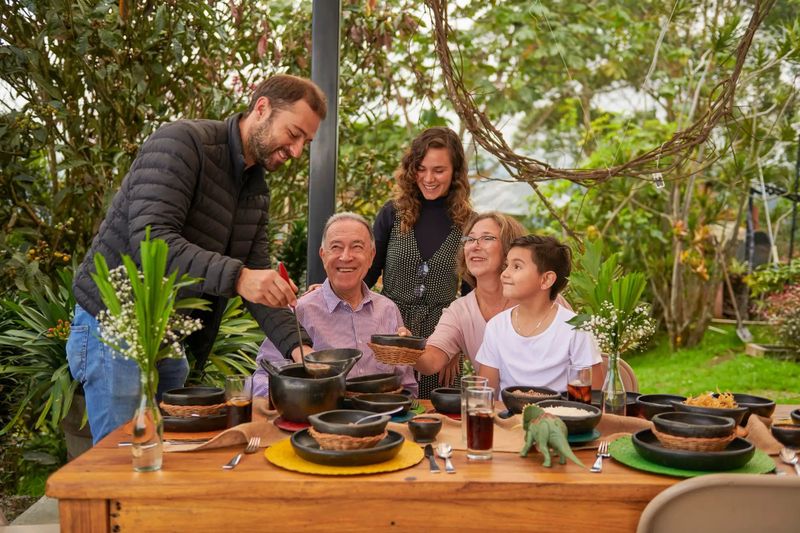
No one rallies the family like a grandparent. Birthdays, reunions, or Sunday dinners—they pull everyone back, even when you’re scattered by distance or disagreements. The invitations sound casual, but you know it’s a command you can’t ignore—and somehow, you’re always glad you came.
She remembers who hates onions, who’s allergic to cats, who needs a pep talk after a breakup. You watch her navigate old rivalries, smooth out tension, and remind everyone why you belong together. Family bonds get tested, but she ties the knots a little tighter each time.
Research shows that kids raised in close-knit families are more resilient and less lonely. If you look around the table and see faces you love, thank a grandparent. They’re the glue, even if they insist they’re “just making dinner.”
11. Encouraging Resilience
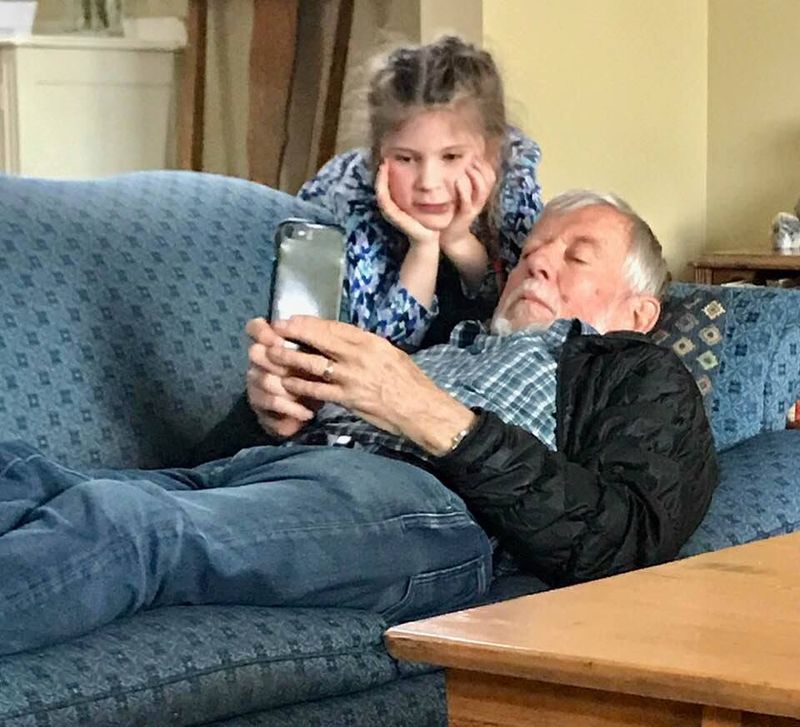
Resilience doesn’t come from pep talks—it comes from watching someone survive. Your grandma has lived through loss, disappointment, maybe even heartbreak she never talks about. Yet here she is, showing you how to patch jeans instead of throwing them away.
She teaches you to keep going, to find a solution when things fall apart. When you fail, she doesn’t offer hollow comfort; she sits with you in it, then hands you a needle and thread. You learn that things can be mended, even when they look ruined.
Here’s the kicker: Resilience isn’t about never breaking; it’s about believing you can heal. You hear her voice in your head every time you try again, long after you’ve left her kitchen.
12. Sharing Their Hobbies and Interests
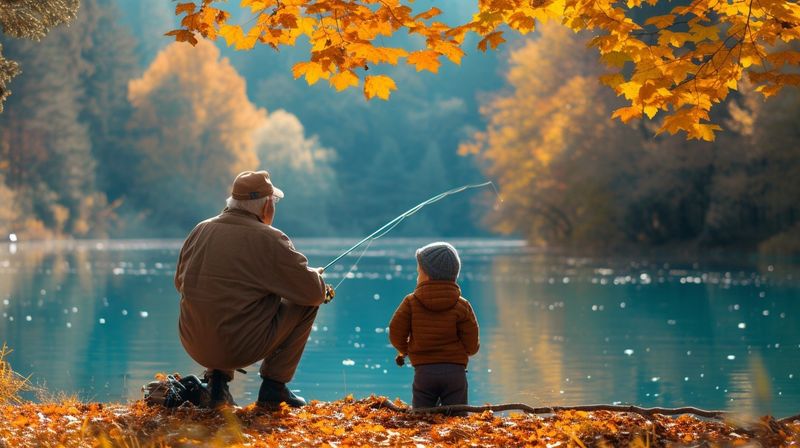
There’s a special magic in learning something just because your grandparent loves it. Maybe it’s fishing before sunrise, gardening in the heat, or collecting coins from places you’ll never visit. You feel included in a secret club, handed knowledge that others might not even value.
The best part? The hobby doesn’t have to be cool or trendy. It’s the ritual—the early mornings, the whispered instructions, the way he lights up when you finally get it right. Those moments become your shared language, a set of memories only you two understand.
Fun fact: Studies show that learning hobbies with grandparents improves cognitive skills and emotional connection. More important than science? You’re building stories you’ll tell for decades.
13. Providing Unique Perspectives
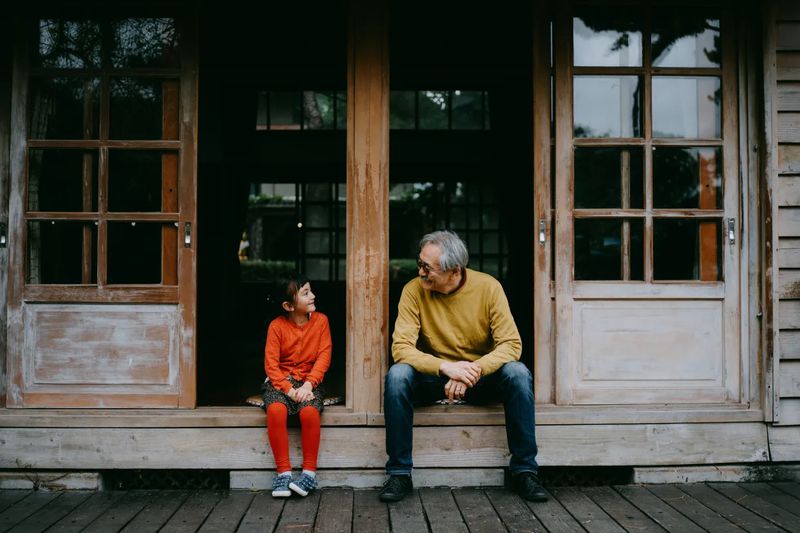
You think you know how the world works—until your grandma tells you what it was like before cell phones, before the internet, before everything got loud. Suddenly, your problems look different. She challenges your assumptions, sometimes gently, sometimes with a snort of laughter.
She’s lived through things you only read about. Her stories make you question what you take for granted. She tells you what worked, what failed, and why she’d do it differently now.
Grandparents force you to zoom out. They remind you that your crisis isn’t the end of the world—it’s just one chapter. You walk away with a wider lens, and maybe a little less certainty (which isn’t a bad thing).
14. Celebrating Achievements

Nobody cheers louder than a grandparent. Whether you win or lose, there’s a homemade sign, a bag of orange slices, and a standing ovation just for showing up. You roll your eyes at the fuss, but secretly, you love it.
He remembers every small victory—first steps, spelling bees, that time you finally learned to ride a bike. In a world that’s quick to criticize, he’s your loudest believer. That applause echoes in your head when you’re doubting yourself later.
Here’s the secret: Grandparents don’t just celebrate what you do. They celebrate who you are, flaws and all. That kind of support doesn’t just boost your self-esteem; it teaches you to celebrate others, too.
15. Helping Emotional Intelligence
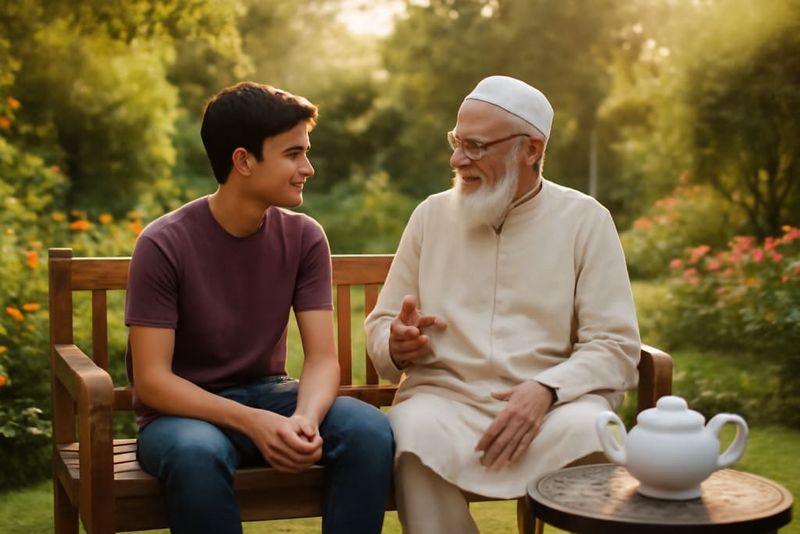
You know those talks that start out awkward but end up changing something inside you? Grandparents have a knack for those. She doesn’t rush you to spill your secrets, but she’ll sit through the awkward silences until you’re ready.
She asks questions that make you think—about how you feel and why. She helps you name emotions that used to just feel like noise. You start to notice what triggers you, what soothes you, and how to care about other people’s feelings.
Turns out, this is emotional intelligence in action. Grandparents model it not by lecturing, but by being present, curious, and forgiving. You carry those lessons into every relationship you ever have.

